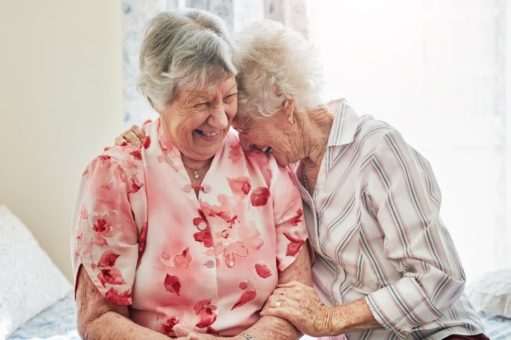National Grandparents Day falls each year on the first Sunday after Labor Day, and this year it will fall on September 8th. This day was started to celebrate and acknowledge family, traditions, and heritage. This day was founded by Marian Lucille Herndon McQuade who had 43 grandchildren. The three purposes for this day was to honor grandparents, to give grandparents an opportunity to show for their children’s children guidance, and support that older individuals can offer. The elderly population can offer so much hope and wisdom to younger generations. Unfortunately, this population is often overlooked and sometimes even neglected. The elderly are usually on a fixed income, may have some health problems, are fragile, and are also prone to mental health disorders such as depression and anxiety. Mental health in the elderly is a rising concern as a large portion of our population ages. Globally, the population is aging rapidly. According to statistics between 2015 and 2050, the proportion of the world’s population over 60 years will nearly double, from 12% to 22%. Mental and neurological disorders among older adults account for 6.6% of the total disability (DALYs) for this age group, and approximately 15% of adults 60 years of age and have a mental disorder. Mental health in the elderly is a rising concern as a large portion of our population ages.
Risk factors for mental health in the elderly
Older individuals experience life stressors common to all individuals in addition to stressors that are more common in older age. The elderly population may experience a decline in functional ability. Such as decreased mobility, dementia, fatigue, chronic pain, and other medical problems that may require long-term care. Additionally, the older generations are more likely to experience social and emotional stressors such as grief, a drop in socioeconomic status with retirement, substance abuse, loneliness, and psychological distress. The elderly are also vulnerable to elder abuse, including physical, verbal, mental, financial and sexual violence, and abandonment. Current evidence suggests that 1 in 6 older people experience elder abuse. Elder abuse can lead not only to physical injuries but also to severe, sometimes long-lasting psychological consequences, including depression and anxiety. Mental health has a significant impact on physical health and vice versa. If an elderly individual is experiencing any of the above risk factors, there is at risk of developing a mental health disorder or worsening a mental health disorder that already exists.
Symptoms of mental illness in the elderly
- Changes in appearance or problems are maintaining the home or yard.
- Confusion, disorientation, problems with concentration, or decision-making.
- Decrease or increase in appetite; changes in weight.
- Depressed mood lasting longer than two weeks.
- Feelings of worthlessness, inappropriate guilt, helplessness; thoughts of suicide.
- Memory loss, especially recent or short-term memory problems.
- Physical problems that can’t otherwise be explained: aches, constipation, etc.
- Social withdrawal; loss of interest in things that used to be enjoyable.
- Trouble handling finances or working with numbers.
- Unexplained fatigue, energy loss or sleep changes.
Depression and dementia in the elderly
The most common mental health issue among the elderly is severe cognitive impairment or dementia. An estimated 5 million adults 65 and older currently have Alzheimer’s disease, about 11% of seniors, according to the Alzheimer’s Association. Losing car keys, forgetting to turn the stove off, not recognizing familiar faces, getting lost, forgetting names, changes in mood, and personality are all early signs of dementia. And many elderly individuals will try to deny or cover up symptoms from their loved one. Depression and mood disorders are also fairly widespread among older adults, and they often go undiagnosed and untreated. The CDC reports that 5% of seniors 65 and older reported having current depression, and about 10.5% reported a diagnosis of depression at some point in their lives. Unfortunately, mental illness is often undiagnosed or misdiagnosed in the elderly for a number of reasons. If an elderly individual has changed with their eating and sleeping habits, then depression should automatically be at the forefront of diagnosis.
Why is mental illness difficult to diagnosis in the elderly?
Some practitioners and loved ones assume the symptoms are part of the normal aging process. Older people grew up in an era where mental illness was frowned upon. Therefore there is a lot of stigmas attached to this, and many elderly individuals have physical health concerns that may overshadow their mental health symptoms. Too often, changes in mood, interest, activity level and personality are incorrectly attributed to aging, and the possibility of mental illness is not considered
